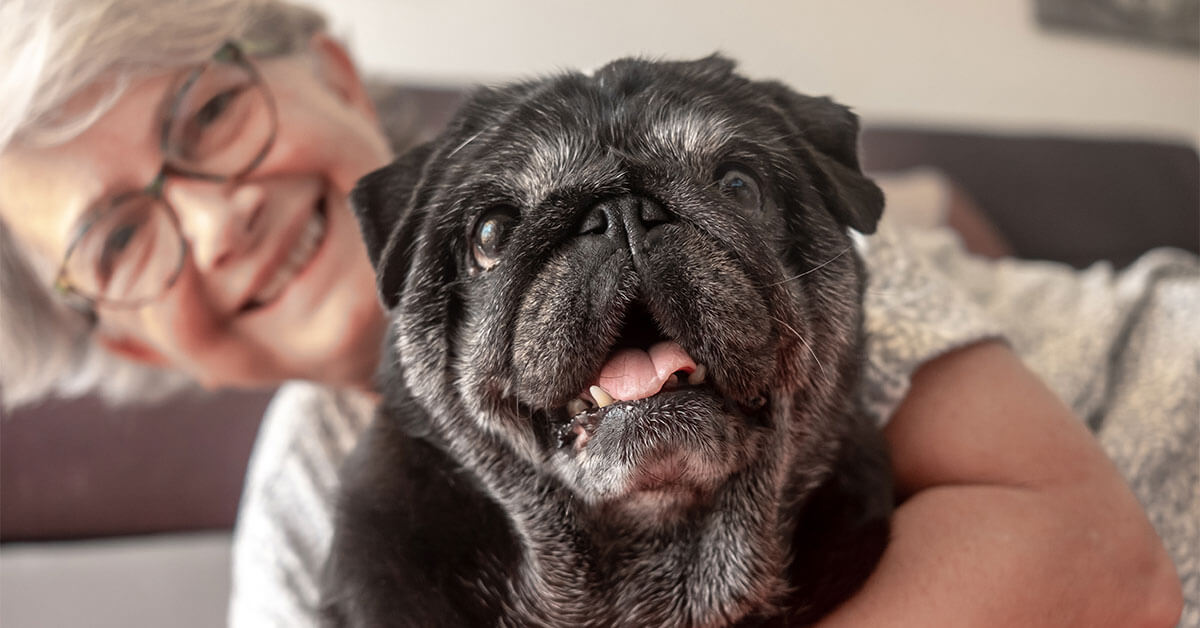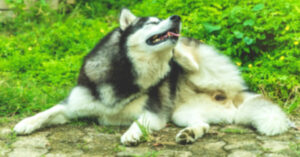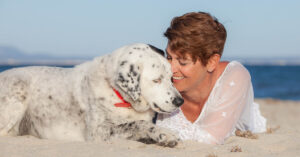As our furry friends age, they inevitably face changes that come with the later stages of life. Senior pets often require special attention and care to keep them healthy and comfortable. By understanding the unique needs and typical health concerns of our pets in their later years, we can help them experience the utmost joy and fulfillment during their golden years.
Recognizing Senior Pets
The point in life when a pet is recognized as a senior can differ based on various factors, including their size, breed, and species. For example, small dog breeds tend to live longer than larger breeds, so they might be considered seniors at around 10-12 years, while larger breeds may reach senior status at 7-8 years. Cats generally become seniors around 11-14 years. Please consult your veterinarian to determine when your pet reaches its senior years and to discuss a tailored care plan.
Special Care Needs for Senior Pets
- Diet and Nutrition: Older pets may have different nutritional needs. They may require fewer calories due to decreased activity levels or more protein to maintain muscle mass. Certain senior pets might find supplements like glucosamine for joint health or omega-3 fatty acids for brain health beneficial. It’s essential to discuss with your veterinarian to figure out the most suitable diet for your maturing pet.
- Regular Vet Checkups: Senior pets are more prone to health issues, so scheduling regular vet checkups at least twice a year is crucial. Identifying health problems early on can pave the way for more successful treatments and enhance the quality of life for your pet.
- Exercise and Mental Stimulation: While senior pets may slow down, they still need regular exercise to maintain healthy body weight and mental stimulation to prevent cognitive decline. Adapt their exercise routine to their current abilities, considering shorter, more frequent dog walks or gentle play sessions for cats.
- Grooming and Hygiene: Older pets may struggle with grooming, so it’s essential to help them maintain a clean and healthy coat. Brush them regularly to prevent matting and check for skin issues. Trim their nails and ensure their ears and eyes are clean. Dental health is also vital, so continue with regular dental checkups and teeth brushing.
Common Health Issues in Senior Pets
- Arthritis: Many older pets suffer from arthritis, which can cause pain and reduce mobility. Supplements, anti-inflammatory medications, acupuncture and special orthopedic beds can help alleviate their discomfort.
- Cognitive Dysfunction Syndrome (CDS): Similar to Alzheimer’s in humans, CDS can affect senior pets, causing confusion, disorientation, or changes in behavior. Consult with your trusted veterinarian about potential treatment strategies and methods to engage and activate your pet’s cognitive functions.
- Kidney Disease: This prevalent condition in aging pets can result in symptoms like heightened thirst, more frequent urination, or loss of weight. Early detection and dietary management can help slow down the progression of the disease.
- Dental Disease: Senior pets are prone to dental issues, which can lead to pain, infections, and loss of appetite. Regular dental checkups and home dental care are essential for preventing severe dental disease.
- Vision and Hearing Loss: Age-related vision and hearing loss are common in senior pets. While they can usually adapt well, it’s essential to consider their needs and make adjustments to their environment.
Making Their Golden Years Comfortable
- Create a Safe Environment: Make sure your home is senior pet-friendly. Provide non-slip surfaces, easy access to their favorite spots, and avoid sudden changes in their environment.
- Patience and Understanding: Senior pets may become less responsive or more easily confused. Be patient and understanding, offering them extra attention and affection.
- Provide Enrichment: Keep their minds active with puzzle toys, scent games, or gentle interactive play. This mental stimulation can help delay cognitive decline.
- Monitor for Changes: Keep an eye on your senior pet for any changes in behavior, appetite, or weight. Addressing any issues promptly can significantly improve their quality of life.
Caring for senior pets can be a rewarding experience. Their loyalty and companionship have enriched our lives for many years, and it’s our responsibility to ensure their golden years are filled with love, comfort, and care. By understanding their unique needs and providing a nurturing environment, we can help our senior pets enjoy a happy and fulfilling life in their later years.
Let us help you with caring for your senior pets. Call (949) 464-1000 to schedule an appointment with Dr. Cohen today.
Dr. Mathew Cohen, DVM MS CVA, the Medical Director at Laguna Beach Veterinary Medical Center, is certified in Veterinary Acupuncture and Herbal Medicine from Chi University.



